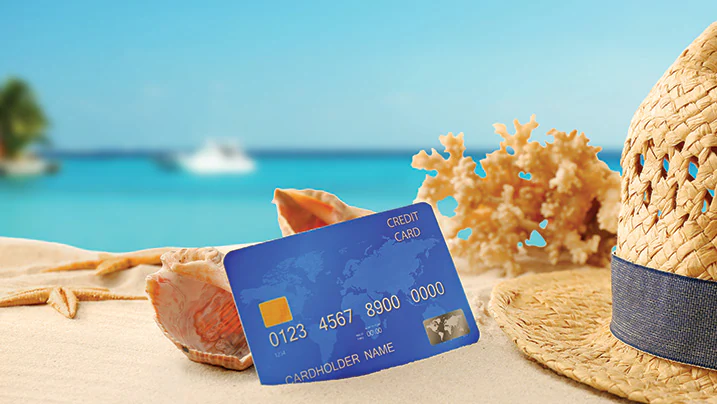Truth About Travel Credit Cards
Travel credit cards have become increasingly popular in recent years, promising free flights, hotel stays, and other luxurious travel perks. The idea of earning points or miles with every purchase and then redeeming them for exotic vacations is enticing. After all, who doesn’t want to globe-trot for free?
Travel rewards cards often come with hefty sign-up bonuses, further fueling the excitement around these products. It’s not uncommon for a new card to offer 50,000 or more bonus points after meeting a minimum spending requirement in the first few months. If redeemed strategically, these points can translate to hundreds of dollars worth of travel.
Additionally, many travel cards boast premium benefits like airport lounge access, flight rebates, and travel insurance coverage. These perks can provide tangible value, especially for frequent flyers. It’s no wonder that travel cards have become the holy grail for points and miles enthusiasts.
The Darker Side Of Travel Rewards:
While travel credit cards can offer valuable rewards, there is a darker side that consumers should be aware of. The truth is that these cards often come with significant trade-offs that can undermine their purported benefits.
Annual Fees:
Travel of travel cards’ most significant downside is their high annual fees. Many premium travel cards charge $95, $195, or even $550 annually to keep the card open. These steep fees can quickly erode the value of the rewards if you maximize the card’s benefits.
The sign-up bonuses may be enticing, but you need to do the math to ensure that the ongoing rewards and perks justify the annual cost. This is especially true for infrequent travelers who cannot fully utilize all the card’s features.
The Complicated Redemption Process:
Redeeming travel rewards can also be a complex and frustrating process. Unlike straightforward cash-back cards, travel cards often have convoluted redemption portals, blackout dates, and restrictions on award availability. Depending on the program, you may have to navigate multiple steps to book a flight or hotel stay using your points or miles.
How and when you redeem points can significantly affect their value. Moreover, some travel rewards programs devalue their currencies over time, making extracting maximum value from your hard-earned rewards harder. Staying current on program changes and optimizing redemptions requires a significant time investment.
Inflated Pricing:
Another potential downside of travel rewards cards is that they can encourage overspending. The focus on earning points or miles may lead cardholders to make impulsive purchases to increase their rewards balance.
Some travel providers may also inflate their prices for cardholders, knowing they pay with points or miles rather than cash. This can diminish the actual value of the rewards earned.
Foreign Transaction Fees:
Travel credit cards waive foreign transaction fees, which can be a valuable perk for globetrotters. However, not all travel cards offer this benefit. Selecting a card that charges foreign transaction fees can significantly erode the value of your rewards when purchasing abroad.
Credit Score Impacts:
Due to the lengthy inquiry, applying for a new credit card can also temporarily negatively impact your credit score. While the score impact is usually minor and short-lived, it’s something to be aware of, especially if you plan to make a significant purchase like a home or car shortly.
Maximizing The Value Of Travel Rewards:
Despite the potential downsides, travel credit cards can still be a valuable tool for savvy consumers. The key is to understand the nuances of these products and develop a strategy to maximize their benefits while minimizing their drawbacks.
Choose The Right Card For Your Needs:
The first step is to select a travel credit card that aligns with your spending patterns and travel habits. Consider your monthly budget, your frequent purchases, and how frequently you travel. For example, if you’re a frequent flyer, you may want a card that offers bonus points on airfare and provides valuable perks like airline lounge access. On the other hand, a card with boosted rewards on hotel stays and elite status benefits might be a better fit if you’re more of a hotel enthusiast.
Maximize Rewards Earning:
Once you’ve chosen a travel card, focus on optimizing your rewards. This may entail strategically rotating your spending between cards to take advantage of bonus categories or using shopping portals and other partner programs to earn additional points or miles. It’s also important to keep track of any spending thresholds or bonuses offered by your card issuer and time your big purchases accordingly to maximize the rewards earned.
Redeem Wisely:
When it comes time to redeem your rewards, research to ensure you get the best value possible. This may include comparing the cash value of your points or miles to the cost of travel bookings or utilizing airline and hotel transfer partners to stretch your rewards even further.
Be wary of redeeming for less-than-optimal value, such as using your points for statement credits or gift cards. Instead, focus on booking high-value redemptions like premium cabin flights or luxury hotel stays.
Maintain Healthy Credit:
Finally, managing your travel credit cards responsibly is essential to avoid negatively impacting your credit. Pay your balances in full each month to avoid interest charges, and be mindful of your overall credit utilization ratio. Additionally, be selective about the number of new credit card applications you submit, as each hard inquiry can temporarily damage your credit score.
Conclusion:
Travel credit cards can offer valuable rewards and perks, but they also come with significant trade-offs that consumers should be aware of. By understanding the nuances of these products and developing a strategic approach to maximizing their benefits, savvy cardholders can enjoy the thrill of free travel without the pitfalls.
Remember, the actual value of a travel rewards card lies in how well it aligns with your spending habits and travel goals. Do your research, crunch the numbers, and choose a card that will provide the most tangible value for your unique situation. With little effort, you can unlock the full potential of travel credit card rewards.



